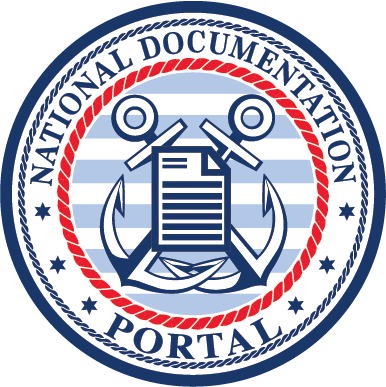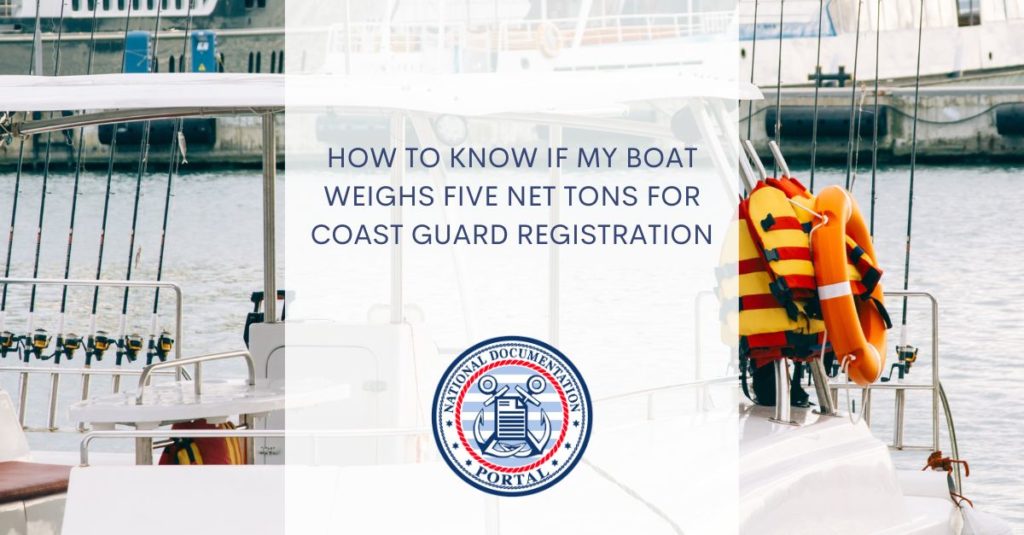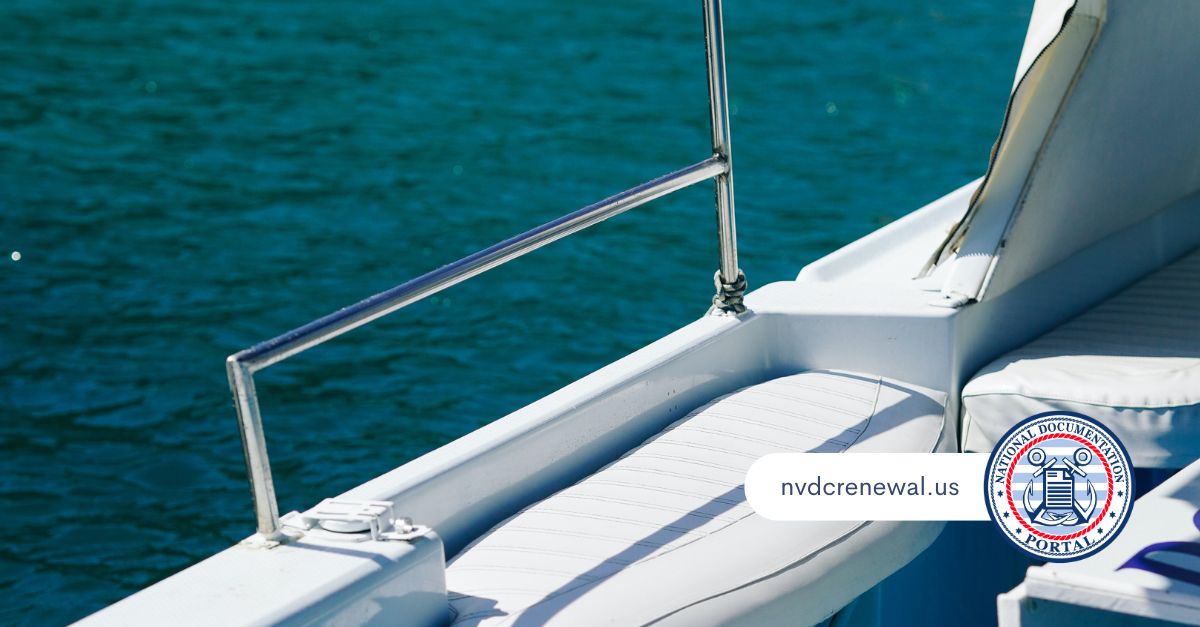Your boat’s weight is an important aspect of Coast Guard registration. That’s because any vessel not undertaking commercial activities that is under five net tons does not need to be registered. In addition to other vital data, the weight of watercraft is vital when documenting its specs on an application or renewal. So how do you know if your boat qualifies for registration with the U.S. Coast Guard? Use this handy guide to point you in the right direction.
How is Weight Determined?
Tonnage, which is used to describe boat weight, is a unit of volume, rather than a unit of weight. Therefore, you won’t be loading your vessel onto a giant scale to see if it reaches the 5-ton requirement for U.S. Coast Guard registration. Rather, you’ll use the boat’s dimensions to calculate tonnage.
This method – known as the Simplified Measurement System – is endorsed by the US government.
General Guideline
Generally, if your boat exceeds 26 feet in length, you can assume it weighs at least five net tons. However, while this is a good way to get a general idea of your boat’s weight, you should always double-check since some boats of this length may not weigh enough.
Boats over 79 feet in length may require an alternate way to calculate net tonnage. However, for most vessels, you can use the basic mathematical guidelines below to get a good idea of what your boat’s net tonnage is.
How to Calculate Weight
To get an accurate volume weight for your boat, it’s necessary to measure from the bow to the stern and from the funnel to the keel. Then you can use those numbers to calculate tonnage. One way to calculate the gross tonnage of a boat is by adding the hull volume to the deckhouse volume and dividing that number by 100.
There are some other things to keep in mind as well. For boats with box-shaped or circular hulls, the dimensions will need to be adjusted by .84 and .67, respectively. You’ll need to calculate .75 for sailing vessels and other hull shapes.
For boats with more than one hull, you’ll need a different gross tonnage calculation.
This is a very simplistic view of the calculation and if you need to undertake finding your boat’s volume, it is best to access a resource that offers a detailed breakdown of how to arrive at the most accurate number.
What Counts as Volume?
The U.S. Coast Guard describes net tonnage as any part of the vessel that offers a useful capacity. That means that areas of the boat that don’t carry cargo, such as the crew’s space, don’t count toward the watercraft’s net tonnage. This is important to keep in mind when you calculate tonnage as it can skew the numbers if you don’t keep it out of the volume measurement.
Getting an accurate weight of your boat may feel a bit overwhelming. After all, there’s a lot of math involved. It is a lot easier if you have the original builders certification which will detail net tonnage. When you know your boat’s net weight, you can easily access the forms on this site to deal with any aspect of coast guard registration.


